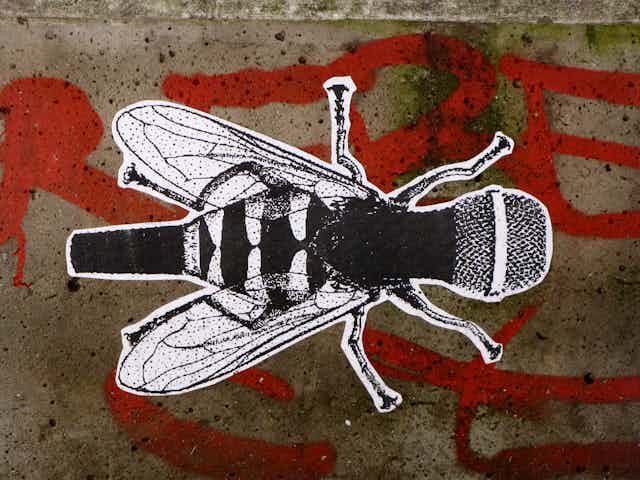Can podcasting be patented? If you are an instigator of what’s being referred to as the SHIELD Act – introduced into US Congress last month – the answer would seem to be no. If you represent a US company called Personal Audio, the answer would seem to be yes. So who is right, and more likely to win out?
That question piques my interest both personally and professionally. Later this year I hope to start podcasting. I’ve bought a microphone, registered at the Apple Store, and am now limbering up the vocal chords before taking the plunge.
It sounds so simple, and it’s cheap – or so I thought.

Personal Audio, based in Texas and founded in 1996, claims it “invented” podcasting, has a patent to prove it, and has made millions through litigation and license fees through what’s known as “patent trolling”. Unlike the slang term for someone who posts deliberately inflammatory comments online, patent trolls are people or companies that enforce their patents for financial gain.
Even though such behaviour is less of an issue in Australia due to our strong Patents Act, Australians with successful podcasts in the US could be sued too.
So if I’m one, I might expect a call from Personal Audio LLC.
Who is Personal Audio?
Despite reportedly not having sold a single product since 1998, Personal Audio is a nice little earner by being an aggressive patent troll.

Which is to say, it sues major podcasters who refuse to pay it a license fee, with some success.
In 2011, a federal jury in Texas awarded Personal Audio US$8 million in its lawsuit against Apple.
This encouraged the company to go after others, with comedy podcast The Adam Carolla Show and HowStuffWorks’ Stuff You Should Know podcast among its targets.
Samsung, Motorola, RIM, Archos, Coby, Sirius, LG and HTC have paid up license fees to avoid litigation.
Patent basics
In the US, utility, design, and plant patents are granted by the Patent and Trademark Office (USPTO).
Utility patents are most common, and can be issued, according to the USPTO website, to:
anyone who invents or discovers any new and useful process, machine, article of manufacture, or composition of matter, or any new and useful improvement thereof.
According to its patent, Personal Audio claims to have designed a “system for disseminating media content representing episodes in a serialised sequence” - a concept within which podcasting falls.

And under US patent laws, anyone considered infringing a standing patent - in this case, podcasters - can be sued in Federal court by the patentee.
Patent trolls now account for the majority of all US patent lawsuits, and it’s been estimated that they netted US$29 billion in 2011 alone.
How did Personal Audio secure its patent?
As well as being lucrative, patent trolling is easy to do. A quick look at Personal Audio’s patent shows just how simple it is to claim valuable intellectual property.

Podcasting has been around for some time, and while Personal Audio’s patent was issued in 2012, the company claims it filed papers in 1996 that covered the same technology.
In addition, the overworked patent offices, particularly in the US, often grant patents for ideas that are neither new nor revolutionary.
Trolls seize on patents that are vague and describe function, rather than going to the trouble and cost of actually inventing something - and such actions are on the rise.
A 2012 study found that lawsuits filed by troll-like entities grew from 22% in 2007 to 40% in 2011. The study’s authors wrote:
From all appearances, lawsuits filed are only the tip of the iceberg, and a major operating company may face hundreds of invitations to license for every lawsuit.
And trolls don’t only make financial threats. Notorious copyright troll Prenda Law - an Illinois-based law firm – files lawsuits against those who allegedly download copyrighted “adult” films.
If the accused don’t settle - perhaps for a few thousand dollars - they risk being sued for a larger sum, with the spectre of their interest in porn being aired in public.
Are patent trolls unstoppable?
It may seem patent trolls are here to stay, but that might not be the case for much longer.
The mission of the Electronic Frontier Foundation (EFF) - an non-profit digital-rights group based in the US – is to protect “freedoms in the networked world”, and it sees so-called “patent trolls” as a significant threat.
According to the EFF website, trolls use “patents as legal weapons, instead of actually creating any new products or coming up with new ideas”, and it specifies that Personal Audio is patent trolling.
But without a change in the law, patent trolls will continue to prosper.
But there is hope. As mentioned at the start of this article, the Saving High-tech Innovators from Egregious Legal Disputes (SHIELD) Act was introduced into the US Congress last month by Reps Peter DeFazio and Jason Cheffetz.
The Act is designed to deter would-be patent trolls by forcing them to pay legal costs for lost cases.
While some people have their misgivings, the Act has been billed as the first step towards eliminating patent trolls.
After all, once my podcast starts making me millions, I don’t want to be sharing it with anyone.

